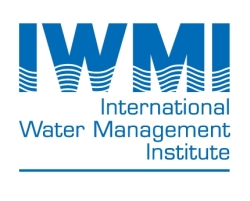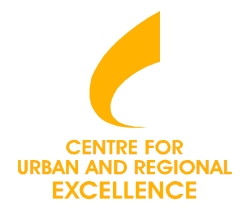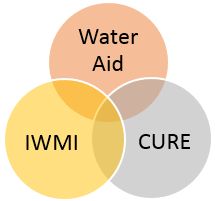About WaterAid
 Established in 1981, WaterAid (WA) has been working in India since 1986 to promote access to safe water and sanitation in both rural and urban areas. WaterAid’s presence in India is national in scope, with interventions in 50 districts from 11 states. While WA’s goal is universal access to WASH, we focus primarily on the excluded and most marginalised communities. WA works on drinking water security, WASH in Health and Nutrition, WASH in Schools, Climate Change and Disaster Risk Reduction and Rural and Urban WASH. WAI’s country office is located in Delhi. Each region is managed through a Regional Office (RO). RO-North based in Lucknow manages programs in Uttar Pradesh, Bihar, Rajasthan; RO-East based in Bhubaneshwar manages programmes in Odisha and Jharkhand; RO-South based in Bangalore manages Karnataka, Tamil Nadu, Andhra Pradesh, Telangana; RO- West based in Bhopal manages Madhya Pradesh and Chhattishgarh.
Established in 1981, WaterAid (WA) has been working in India since 1986 to promote access to safe water and sanitation in both rural and urban areas. WaterAid’s presence in India is national in scope, with interventions in 50 districts from 11 states. While WA’s goal is universal access to WASH, we focus primarily on the excluded and most marginalised communities. WA works on drinking water security, WASH in Health and Nutrition, WASH in Schools, Climate Change and Disaster Risk Reduction and Rural and Urban WASH. WAI’s country office is located in Delhi. Each region is managed through a Regional Office (RO). RO-North based in Lucknow manages programs in Uttar Pradesh, Bihar, Rajasthan; RO-East based in Bhubaneshwar manages programmes in Odisha and Jharkhand; RO-South based in Bangalore manages Karnataka, Tamil Nadu, Andhra Pradesh, Telangana; RO- West based in Bhopal manages Madhya Pradesh and Chhattishgarh.
WA’s work on urban sanitation covers several large and medium sized towns: Kanpur, Hyderabad, Lucknow, Patna, Delhi, Hyderabad, Jabalpur, Bhopal, Indore, Ujjain, Sawai Madhopur and Puri. It has an integrated and city-wide approach in these areas, with a special emphasis on the low-income areas. The objective is to ensure the poor and marginalised have access to WASH services by strengthening existing government delivery mechanisms, and communities are empowered to negotiate these services with the government.
WA has piloted alternate technologies to minimise faecal sludge at several locations across India:
- Puri – school toilet fitted with anaerobic bio-digestor
- Kanpur – school toilet with anaerobic bio-digestor
- Ujjain – community toilet with anaerobic bio-digestor
- Kanpur – slum households fitted with eco-vapor toilets
WA has conducted a national level study on faecal sludge management covering five states. These findings will inform WAI’s institutional engagement and process of developing the blueprint of faecal sludge management in this project. WAI have engaged closely with MoUD on urban sanitation issues while developing their urban WASH strategy. This strategy envisages a city-wide approach focusing on poor habitations to provide them quality WASH services. The underlying approach is to strengthen the government institutions to delivery these rather than doing it directly.
WaterAid India is part of National Faecal Sludge and Spetage Management Forum of development partners and organisations which contributes to national level advocacy agenda on Faecal Sludge Management with Ministry of Urban Development and other stakeholders.
In Delhi, WAI works through four partner organisations across the city including 104 slums in eleven districts. WAI has very close working links with the Delhi Government and its departments – DUSIB, DDC, PWD and DJB. WAI has been invited to work on a city-wide approach for faecal sludge management and the provision of sanitation services for the poor by the Government. This positions us uniquely to take on this project in the city.
About International Water Management Institute (IWMI)
 International Water Management Institute (IWMI) is one of 15 international research centers supported by the network of 60 governments, private foundations and international and regional organisations collectively known as CGIAR. It is a non-profit organisation with a staff of 350 and offices in over 10 countries across Asia and Africa and Headquarters in Colombo, Sri Lanka. IWMI’s team of 110 researchers include irrigation and agricultural engineers, economists, agronomists, remote sensing and spatial analysts, social scientists, ecologists and wetland specialists, water quality and health experts, soil scientists and agronomists.
International Water Management Institute (IWMI) is one of 15 international research centers supported by the network of 60 governments, private foundations and international and regional organisations collectively known as CGIAR. It is a non-profit organisation with a staff of 350 and offices in over 10 countries across Asia and Africa and Headquarters in Colombo, Sri Lanka. IWMI’s team of 110 researchers include irrigation and agricultural engineers, economists, agronomists, remote sensing and spatial analysts, social scientists, ecologists and wetland specialists, water quality and health experts, soil scientists and agronomists.
IWMI’s Resource Recovery and Reuse (RRR) theme has worked over 15 years on safe sanitation measures which includes developing reuse products from faecal sludge from onsite sanitation and safe wastewater use where the conventional treatment is inadequate and where farmers are using untreated, diluted or poorly treated wastewater. IWMI has a multi-disciplinary team of agricultural economist, environmental scientists, health specialists, and engineers who have more than a decade of experience in waste management (including faecal sludge management) along with overall feasibility assessment and implementation of reuse solutions.
Based on a decade of research on excreta management and safe wastewater and reuse in Africa and Asia, IWMI and its partners have been supporting a shift from treatment for disposal to treatment for reuse by:
- Assessing current wastewater and septage disposal and reuse practices.
- Assessing risks and safe reuse options for wastewater and faecal sludge in farming and along the food chain
- Introducing technical options for composting, blending and pelletising faecal sludge to produce a safe commercial fertiliser
- Assessing business solutions for resource recovery and reuse (RRR) to leverage private capital
- Assisting in drafting guidelines and policies for safe and productive resource recovery and reuse
- Supporting stakeholder participation and policy dialogues.
Following are few key examples of IWMI’s experience in faecal sludge and wastewater management:
- Faecal sludge business model catalogue: IWMI has analysed and described business models across the sanitation value chain of faecal sludge management – collection, transportation, to treatment for reuse. IWMI has developed more than 18 business models across the sanitation chain and assessed over 34 FSM business cases from Asia, Africa and Latin America.
- Feasibility assessment: IWMI has conducted feasibility studies using a multi-criteria framework (assessment of waste supply and availability, technical, market, financial, institutional, and socio-economic) for business models (including faecal sludge) in 10 cities across Asia, Africa and Latin America. In India, IWMI has undertaken feasibility assessment for septage management in three towns in Madhya Pradesh on a cluster based approach in partnership with WSP-World Bank and Govt. of Madhya Pradesh and currently ongoing project in two towns on Ganga basin to reduce pollution loads primarily from faecal sludge from onsite sanitation system.
- Faecal sludge treatment plants: IWMI is setting up public-private-partnership to produce 1,000 tons of faecal based fertiliser as a means of managing faecal sludge and a business-like approach to septage management in Accra, Ghana. In Sri Lanka in partnership with Kurunegala Municipal Council, Central Environment Authority and Ministry of water supply and drainage, IWMI has implemented a co-composting plant for treatment of septage generated by the town. IWMI is also assisting Balangoda Municipal council to develop pellets from faecal sludge based compost. In Nepal, IWMI is providing advisory service in setting up of faecal sludge treatment plants for small towns.
- Septage advisory guidelines, India and Sri Lanka: IWMI is assisting Government of Sri Lanka on septage advisory guidelines and revising the septage advisory note to incorporate guidelines on reuse for India. Revision includes developing an annexure on various technologies applicable to Indian context for treatment of septage.
- Safe irrigation from wastewater: In collaboration with World Health Organisation (WHO) and Food and Agricultural Organisation (FAO), the International Water Management Institute (IWMI) has developed safer irrigation practices to reduce vegetable contamination in urban Sub-Saharan Africa (SSA); and contributed to the international chapter of the 2012 United States Environmental Protection Agency (USEPA)/ United States Agency for International Development (USAID) guidelines for water reuse.
About Centre for Urban and Regional Excellence (CURE)
 CURE is a not-for-profit, development organisation that works with urban, informal and low-income communities. It strives to achieve three goals; reconnected urban societies that take rightful decisions to ensure sustainable urban development; strengthened local agencies with capacities for community engagement, participatory planning and development; and evidence building from the ground up, for people-centered planning and development of cities.
CURE is a not-for-profit, development organisation that works with urban, informal and low-income communities. It strives to achieve three goals; reconnected urban societies that take rightful decisions to ensure sustainable urban development; strengthened local agencies with capacities for community engagement, participatory planning and development; and evidence building from the ground up, for people-centered planning and development of cities.
CURE’s signature projects are in Delhi and Agra where it has implemented a broad range of solutions in slum communities for sustainably improving access to water and sanitation services, housing and livelihoods. These have included; a. localised and de-engineered (customised) home toilets networked to city’s trunk infrastructure; b. decentralised options in un-served areas such as cluster (shared) septic tanks with simplified sewer lines to enable home toilets; c. water treatment plants as business enterprises for making access to safe drinking water; d. waste water treatment systems such as Decentralised Waste Water Treatment System (DEWATS) with recycling of treated water; e. door-to-door waste collection and composting; and f. rooftop rainwater harvesting and ground water recharging systems with a long-term vision to revive the wells and make Agra water resilient.
CURE has partnered with Delhi’s slum communities, Delhi Jal Board (DJB), Delhi Urban Shelter Improvement Board (DUSIB), and East Delhi Municipal Corporation (EDMC) with financial assistance of WaterAid, Tata Trust and Save India, to implement participatory processes for slum upgrading, poverty reduction and health awareness. WATSAN innovations in Delhi are inspired by CURE’s Agra work, where, with financial assistance of USAID’s FIRE D project and Cities Alliance, CURE has prepared and is helping implement, a citywide slum-upgrading plan. In Agra, CURE has a. upgraded Kuchpura slum with home toilets, drains, roads, DEWATS and common spaces; b. set up Heritage Walks and water plants as business enterprises, and c. improved access to health services under USAID’s HUP programme. With CURE’s efforts, Agra has leveraged; i. USD12.6million for slum and house upgrading, including from tourism and environment sectors (under implementation) and b. funding (USD 0.46million) from Arghyam for recharging ground water and reviving wells. Work done by CURE in Agra and Delhi has been awarded and recognised.
CURE’s models for in-situ slum development in the cities of Delhi and Agra are community-led, in-situ and comprehensive, and situated within urban ecological contexts and designed to address the water, sanitation, housing and livelihood challenges in the city’s slums. Some of these models are described below.
- Revitalising Social Networks for Water Resilience: To restore the city’s ground water aquifers, the traditional wisdom of people is being restored to achieve a shared goal; plan, fund and revive practices in the community to conserve water, harvest and recharge rainwater. Community rainwater harvesting structures are being built, linking home rooftops to shared underground collection tanks that will bank water for use in drought season.
- De-engineering for Home Toilets: In Savda Ghevra, CURE built a shared sanitation system – a cluster septic tank, networked to homes through simple sewer lines, and upended to a decentralised wastewater treatment system to convert black water into a useful resource for irrigating, flushing, construction etc.
- Networking for Toilets and Place Identity: Safeda Basti is a small slum settlement in East Delhi facing two threats – of eviction and safety for women and young girls from sexual harassment, especially when defecating openly. To help get home toilets, people invested in a simple sewer line that dropped into the neighbourhood trunk sewer. People jointly banked large savings and contributed one-third cost for the system and built their home toilets. They were also actively involved in planning the engineering and actively participated in the implementation – negotiating with the contractor and overseeing the construction.
- Decentralised Wastewater Treatment System (DEWATS): The DEWATS in Agra is a bio-remedial decentralised wastewater treatment system (DEWATS) constructed over a dirty storm water drain running past Kuchpura settlement. People participated in the planning, construction, operation and maintenance of the DEWATS, which has transformed Kuchpura’s living environment and land wealth. Its three unintended benefits have been the reduction in untreated sewage discharge into River Yamuna, a changeover from sewage-based to clean water urban farming and a water resilient community.
- Slope Restoration to Reduce Flooding: Residents of Nepali Basti, at the edge of the Aravalis in Delhi, face recurring floods during rains. A mine pit that served as a water collector has been rendered impermeable because of non-degradable waste deposits. Slope restoration work has been initiated that is doing four things; removing solid waste dumped from the slopes and setting up a door-to-door waste collection system, building cascading water channels to treat community wastewater as it flows to the mine pit, building a living edge with reed beds to treat stagnant water in the pit, and greening the slope with local plants that will stabilise the soil, enhance recharge capacity and use water from the pit.
Besides, developing in-situ slum upgrading CURE has developed citywide slum upgrading plans with comprehensive strategies for the cities of Agra and Ludhiana. These have been based on data that is generated by the community and spatially integrated. CURE has also developed plans for wastewater treatment and restoration of storm water drains to their original purpose by making toilets connected to sewerage to intercept direct faecal discharge.
About Government Partners
Delhi Jal Board
The Delhi Jal Board (DJB) is an autonomous body under the Delhi government, mandated with the provision of potable water. It was created by an Act of the Legislative Assembly in 1998 and has responsibilities for the regulation, treatment, distribution, tariff setting, billing and collection of quality potable water. DJB is also responsible for the treatment of wastewater and ensuring compliance with central government regulations.
Project partners work closely with DJB in the design and development of technical solutions for fecal sludge management. DJB facilitates requisite approvals and will eventually be responsible for the replication and scaling up of decentralized and non-networked solutions, as well as operation and management of infrastructure constructed under the project.
http://www.delhi.gov.in/wps/wcm/connect/DOIT_DJB/djb/home
Delhi Urban Shelter Improvement Board
The Delhi Urban Shelter Improvement Board (DUSIB) under the Department of Urban Development was created in 2010 by an Act of the Legislative Assembly of the Government of Delhi. DUSIB is mandated to improve the quality of life of slum residents. It is responsible for resettlement, formal designation of slums, and provision of housing and other social/civic infrastructure and services, including in squatter settlements (JJ Clusters).
DUSIB supports the work of our partners in the resettlement colony of Savda Ghevra by ensuring land availability, facilitating compliance with regulations and coordinating with DJB. DUSIB will also facilitate the replication and scaling up of decentralized sanitation interventions.
http://delhishelterboard.in/main/?page_id=148
North Delhi Municipal Corporation
The North Delhi Municipal Corporation (NDMC) is the Urban Local Body responsible for, among other things, public health and sanitation. The resettlement colony Savda Ghevra falls under the jurisdiction of NDMC.
NDMC provides support in obtaining requisite approvals for the provision of decentralized wastewater systems. Project partners are also working with NDMC to develop replication and scale-up strategies for the provision of sanitation.






